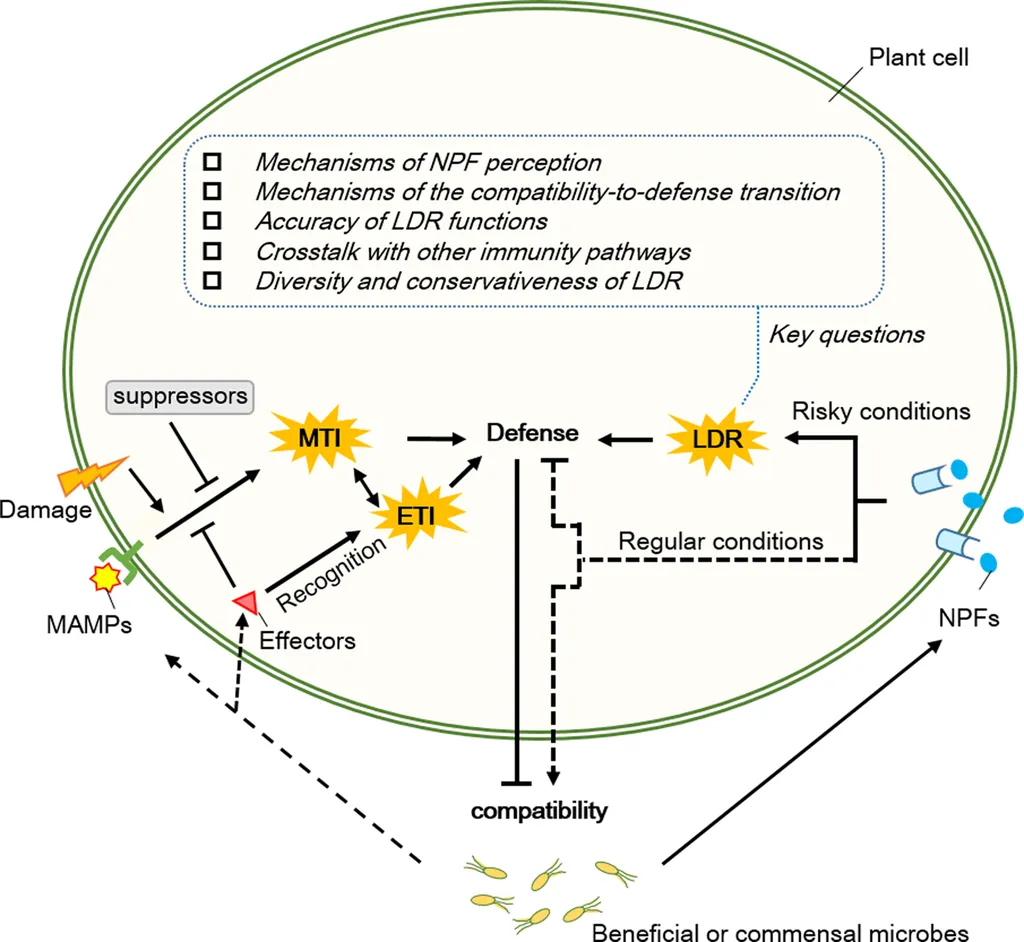In the quest for sustainable agriculture, scientists are increasingly turning to the microscopic world for solutions. A recent study published in *Frontiers in Microbiology* delves into the intricate dance between plants and their microbial partners, uncovering mechanisms that could revolutionize disease resistance in crops. The research, led by Waqar Ahmed from the School of Breeding and Multiplication at Hainan University in China, explores how microbial regulation of plant immunity can be harnessed for practical applications in the field.
Plants, much like humans, rely on a complex immune system to fend off pathogens. However, unlike humans, plants have evolved a symbiotic relationship with a diverse community of microorganisms—collectively known as the microbiome—that plays a crucial role in bolstering their defenses. Ahmed’s research sheds light on the molecular mechanisms underlying this interaction, revealing how specific microbes can prime plants to mount a robust immune response against a wide range of diseases.
“Understanding these interactions is like unlocking a natural treasure trove of biocontrol agents,” Ahmed explains. “By identifying the key microbial players and their mechanisms, we can develop targeted strategies to enhance crop resilience without resorting to chemical pesticides.”
The implications for the agriculture sector are profound. As the global population grows and climate change exacerbates the challenges faced by farmers, the need for sustainable and effective disease management strategies has never been greater. Microbial regulation of plant immunity offers a promising avenue for developing eco-friendly alternatives to traditional chemical treatments.
One of the most exciting aspects of this research is its potential to reduce the reliance on synthetic pesticides, which can have detrimental effects on both human health and the environment. By leveraging the natural abilities of beneficial microbes, farmers could achieve better yields while minimizing their ecological footprint.
“Imagine a future where farmers can apply a microbial cocktail to their fields, knowing that it will not only protect their crops but also improve soil health and biodiversity,” Ahmed envisions. “This is not just a pipe dream; it’s a tangible goal that we are steadily moving towards.”
The study also highlights the importance of preserving and studying microbial diversity. As agricultural practices become more intensive and monocultures dominate landscapes, the delicate balance of the microbiome can be disrupted, potentially weakening plants’ natural defenses. By fostering a deeper understanding of these interactions, researchers hope to guide agricultural practices that promote microbial diversity and, in turn, enhance crop resilience.
Looking ahead, the findings from this research could pave the way for innovative biocontrol products that harness the power of beneficial microbes. Companies in the agritech sector are already taking notice, with several startups and established firms investing in microbial-based solutions. As the technology matures, we can expect to see a shift towards more sustainable and integrated pest management strategies.
In the broader context, this research underscores the importance of interdisciplinary collaboration. By bringing together experts in plant pathology, microbiology, and agronomy, we can develop holistic solutions that address the complex challenges facing modern agriculture.
As Waqar Ahmed and his colleagues continue to unravel the mysteries of microbial regulation of plant immunity, one thing is clear: the future of agriculture lies in the soil—and in the tiny, yet mighty, organisms that call it home.

